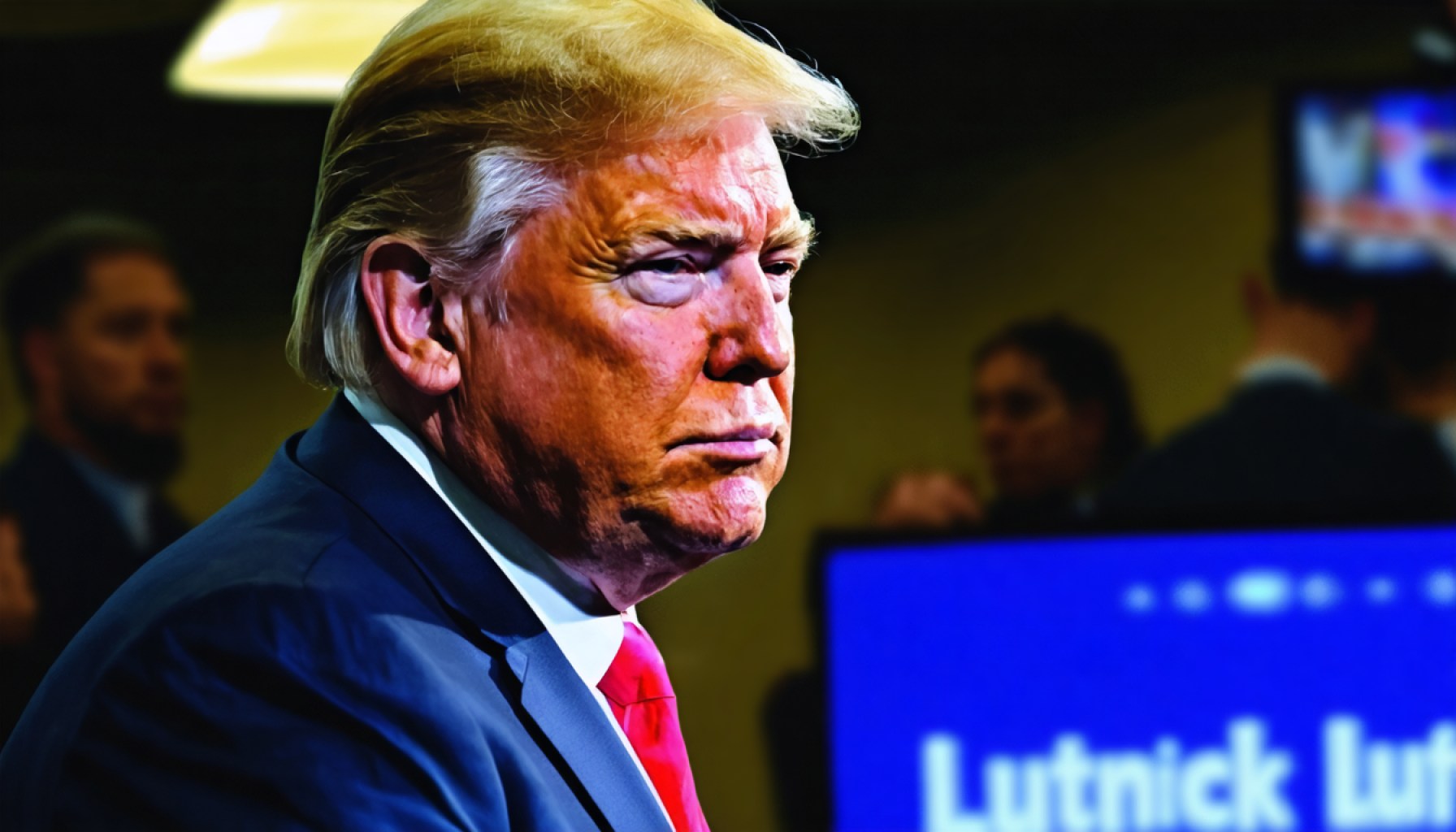- Howard Lutnick confirmed as U.S. commerce secretary with a Senate vote of 51 to 45.
- Lutnick, former CEO of Cantor Fitzgerald, brings strategic acumen to the Trump administration.
- Advocates for tariffs and protectionism to shield U.S. industries from global competition.
- Prioritizes lower corporate taxes and enhancing American production capabilities.
- Focuses on restricting technology exports, particularly in response to China’s technological advances.
- Commits to sever ties with foreign entities leveraging U.S. tech platforms and chips.
- Plays a pivotal role in trade negotiations with China, reshaping America’s economic strategy.
- Lutnick’s leadership reflects a shift towards prioritizing American interests in global commerce.
The atmosphere buzzes with anticipation as Howard Lutnick steps into a role fraught with challenges but bursting with opportunities. Confirmed by the Senate with a 51 to 45 vote, Lutnick assumes the mantle of commerce secretary, a pivotal position under the Trump administration’s economic agenda.
Known for his strategic acumen as the former chief executive of financial powerhouse Cantor Fitzgerald, Lutnick becomes an indispensable ally to President Trump, especially in these times of trade tumult. His vision revolves around a doctrine of tariffs and protectionism, designed to shield U.S. industries from the relentless tide of global competition.
Visualize Lutnick at the helm, navigating the turbulent waters of international trade, fiercely advocating for lower corporate taxes and energizing America’s production capabilities. As the guardian of U.S. commerce, his portfolio sprawls across the globe, championing American business interests against a backdrop of restrictive technology export policies.
Lutnick steps onto this global stage with unwavering resolve, particularly in facing the challenges posed by China’s technological advances. Following revelations that DeepSeek, a Chinese startup, leveraged U.S. tech giants’ platforms and chips, Lutnick vows to sever the ties that feed such advancements. His firm stance heralds a new era of stringent export controls complemented by tariff threats.
As negotiations with China accelerate, Howard Lutnick’s role promises to be instrumental. This dynamic leader’s journey from economic adviser to a central figure in trade talks underscores a profound shift in America’s economic strategy. Lutnick’s tenacity and foresight embody the administration’s commitment to reshaping global commerce with American interests firmly at the forefront.
The ascent of Howard Lutnick offers a stark reminder: in the intricate dance of global economics, those who innovate and fortify their positions on the home front will thrive.
The Future of U.S. Commerce Under Howard Lutnick: Challenges and Opportunities
How-To Steps & Life Hacks in Navigating Trade Policies
Navigating the complex world of international trade policy under Howard Lutnick’s purview requires understanding several key steps:
1. Stay Informed: Regularly update yourself with the latest developments in U.S. trade policies. Reliable sources include U.S. Department of Commerce and White House announcements.
2. Engage with Key Stakeholders: Build relationships with industry leaders, policymakers, and trade experts. Networking can provide insiders’ perspectives on upcoming tariffs or protectionist measures.
3. Adopt Adaptive Strategies: Businesses should remain flexible, ready to adjust strategies based on changes in tariffs or export regulations.
4. Leverage Domestic Resources: Utilize government resources designed to aid domestic industries, such as small business loans or grants for innovation.
Real-World Use Cases of Lutnick’s Vision
Howard Lutnick’s strategic vision can be illustrated in several real-world scenarios:
– U.S. Manufacturing: Companies like Boeing could see benefits from Lutnick’s emphasis on invigorating U.S. production capabilities, potentially receiving incentives to boost domestic manufacturing.
– Technology Export Controls: Firms dealing with sensitive technologies will need to navigate new export restrictions carefully. This includes sectors such as semiconductor manufacturing.
– Agricultural Exports: Farmers may find both challenges and opportunities with potential reciprocal tariffs affecting trade balance with countries like China.
Market Forecasts & Industry Trends
Under Lutnick’s leadership, expect the following trends:
– Increased protectionism could result in short-term volatility but aim to secure long-term domestic growth.
– There’s a focus on sustainable economic practices, emphasizing industries that can pivot to, or create, local supply chains to reduce dependency on foreign production.
Reviews & Comparisons
Comparing Howard Lutnick’s approach to his predecessors reveals:
– Tariff Policy: Unlike predecessors who often sought broader trade liberalization, Lutnick leans towards selective protectionism.
– Corporate Taxation: His emphasis on reducing corporate taxes starkly contrasts with previous models aiming for social welfare through business taxation.
Controversies & Limitations
Despite a robust economic vision, there are limitations and controversies:
– Global Diplomatic Strain: His protectionist stance may heighten trade tensions with less cooperative countries.
– Industry Concerns: Some sectors may fret over increased costs due to tariffs, impacting competitiveness.
Features, Specs & Pricing
Key Features of Howard Lutnick’s Economic Role Include:
– Authority over trade policy implementation.
– Influence over economic tax reforms and corporate incentives.
Security & Sustainability
Sustainable economic practices are a cornerstone of Lutnick’s policies, encouraging:
– Development of domestic supply chains.
– Investment in renewable resources to counteract import dependency.
Insights & Predictions
Expect Lutnick to solidify his focus on:
– Balancing tariffs to safeguard industries.
– Innovating technological development to match geopolitical challenges, particularly with China.
Pros & Cons Overview
Pros:
– Potential reduction in trade deficits.
– Enhanced domestic production capabilities.
Cons:
– Possible retaliatory tariffs.
– Risk of stifling international business partnerships.
Actionable Recommendations
1. Diversify Markets: Businesses should explore new markets to mitigate risks associated with tariffs.
2. Innovate Locally: Invest in R&D for product innovations that can be produced domestically.
3. Tax Strategy: Align corporate tax strategies with forthcoming reforms to maximize potential benefits.
Conclusion
Howard Lutnick’s tenure as commerce secretary signals a new era of American economic policy, characterized by strategic protectionism and vibrant domestic industry support. By staying informed and adaptable, businesses can capitalize on these changes and thrive amid international challenges.
